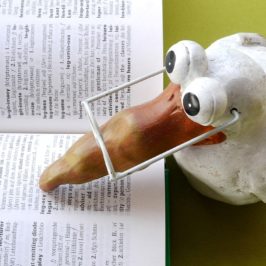The people of this province have a way with words, there’s no denying it. It’s part of what makes a visit to Newfoundland such a unique and colorful experience. But what do they mean, at all?
There are hundreds of unusual expressions commonly used on the island of Newfoundland to articulate feelings and attitudes about people, things and life in general. Many of these eloquent turns of phrase are born from a rugged life lived in large part on the water. It only makes sense, after all, that the inhabitants of a sea-bound and wind-swept land would tend to illustrate meaning using evocative allusions to the ocean and to the weather, fair and foul, that dictates their survival.
There’s a good chance you won’t encounter such richly descriptive expressions anywhere else in the country, and there’s also a good chance you won’t understand their sense on first hearing, so to help you with that, here are a few classic Newfoundland sayings and their meanings:
The fish are eating the rocks. – The fish are plentiful close to shore.
It’s a good day on clothes. – It’s a good day (breezy, not foggy) for drying clothes on the line.
Let no man steal your lines. – Be wary of your competition lest they take what is rightfully yours.
A single line may have two hooks. – An action can have more than one purpose to it.
Don’t be cutting tails. – Don’t be so particular. Cutting tails was a way of marking fish to identify ownership of the catch.
Give her the long main sheet. – To leave with no intentions of ever returning, the main sheet being a reference to the large mainsail.
There’s the devil to pay and no pitch hot. – To be unprepared for an emergency situation. To pay a boat means to spread hot pitch over the seams to make it watertight.
Wait a fair wind and you’ll get one. – If you wait, opportunity will come to you.
You can’t tell the mind of a squid. – You can’t tell what an untrustworthy person might be thinking of doing. Squid can move both backwards and forwards.
You only get one shot at a shell bird. – You’ll only fool a smart person once.
This is a fine kettle of fish. – This is a messy situation.
Your tawts are too far aft. – You are daft in the head, wrong in your thinking. A tawt is a cross seat in a boat.
The older a crab, the tougher its claws. – You can’t fool an old, wise person so easily.
He’s got eyes like a caplin goin’ offshore. – This is said of a person who has bloodshot eyes. A caplin is a small fish.
You can cut a notch in a beam. – This is said when someone accomplishes something unusual.
Fair weather to you. – Good luck in your endeavor.
An hour by sun. – An hour before sunset.
Long may your big jib draw. – This is a good wish for the future, often said as a toast. A jib is a sail, and if it’s drawing, it’s filled with wind, making the journey swift and easy.
Of course, there are many more of these colorful expressions, and depending upon where you travel on the island, you’re likely to come across a few different variations. But now that you’ve got the gist of our seafaring manner of speech, there’s less chance that you’ll end up feeling ‘like a fish out of water’.





